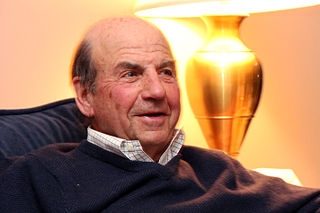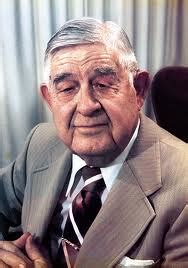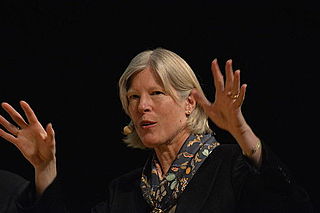A Quote by Wallace Stevens
Related Quotes
There is this tendency to think that if you could only find the magic way, then you could become a poet. "Tell me how to become a poet. Tell me what to do." . . . What makes you a poet is a gift for language, an ability to see into the heart of things, and an ability to deal with important unconscious material. When all these things come together, you're a poet. But there isn't one little gimmick that makes you a poet. There isn't any formula for it.
I was 16 at the time, and I came backstage and started hanging out with them. I said, "Well, maybe you can 'vanish' the silk this way." The opening was a black stage while the "Magic to Do" song started playing. All you saw were hands, lit by Jules Fisher, and then Ben Vereen would appear beyond the hands, and at the end of the scene he would vanish a silk. The spotlight would hit a red spot on the floor where you'd see the silk on the floor. He'd pull the silk out of the floor and it became the entire set coming out of the floor.
As I look out at all of you gathered here, I want to say that I don't see a room full of Parisians in top hats and diamonds and silk dresses. I don't see bankers and housewives and store clerks. No. I address you all tonight as you truly are: wizards, mermaids, travelers, adventurers, and magicians. You are the true dreamers.
One of the appeals of William Carlos Williams to me is that he was many different kinds of poet. He tried out many different forms in his own way of, more or less, formlessness. He was also a poet who could be - he was a love poet, he was a poet of the natural order and he was also a political poet.
Exaggerating?" Silk sounded shocked. "You don't mean to say that horses can actually lie, do you? Hettar shrugged. "Of course. They lie all the time. They're very good at it." For a moment Silk looked outraged at the thought, and then he suddenly laughed. "Somehow that restores my faith in the order of the universe," he declared. Wolf looked pained. "Silk," he said pointedly, "you're a very evil man. Did you know that?" "One does one's best," Silk replied mockingly.
I know that in a poem, even when the speaker is speaking from the poet's experience, there's always something that's borrowed, some authority that sits outside of the poet that the poem has claimed. There's a dramatic pitch that makes the speaker capable of saying something more courageous or stranger or simply other than what the poet would be able to say.







































